
David Sakurai
Born in Copenhagen, Denmark to a Danish mother and Japanese father, David Sakurai’s life has never followed a linear path nor has it been confined to a single place. After reaching his 18th birthday he set off for Japan where he had a number of formative experiences including learning his father’s native tongue, cutting his teeth in the acting community and learning about the martial arts. Upon returning to his native Denmark he began to find jobs in the acting community cementing his reputation as a versatile actor capable of scenes ranging form intense drama to light-hearted comedy. His reputation hasn’t been confined to the Asian and European communities however, earning recognition from the Los Angeles crowd after receiving the “Breakout Action Star Award” at The 2010 AOF International Film Festival. This is in addition to the Best Actor award he had received at the Danish Movie Battle Festival in 2010.
His talents as an actor have allowed him to rub shoulders with internationally recognized talents like actor Stellan Skarsgård (The Girl with the Dragon Tattoo) director Hans Petter Moland (A Somewhat Gentle Man) and producer Lene Børglum (The Neon Demon). Filming in locations such as LA, Budapest and Istanbul along with Denmark and Japan David is truly a member of the global acting community. He’s not so much interested in borders or ethnic identities but rather with originality, a diverse cast and unique and surprising stories.
Hi, David, It is such a pleasure to speak with you!
I was looking for someone with a very special aura and I found you through our mutual friends. The first thing in my mind was like I was brainwashed!
Your existence itself was so sensational and had a big impact to me!
I am so honored to do an interview with you here on my interview website Ninjagirl. When I talked to you in person, I thought, “This is the guy that I was looking for!”
I can feel that your acting is so great and the movies you acted in are so great and interesting! It is especially to me that you are half Japanese and a half Danish. I really am happy to have you here on Ninjagirl. The words comes up in my mind are, “You are a sensational actor and I want to do the interview with you!”
1. Can you tell us about your life growing up in Copenhagen?
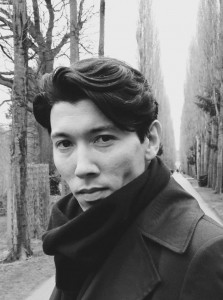 I was born and raised in Copenhagen. My father’s Japanese and my mother’s Danish. I left here when I was eighteen. But I had a very normal childhood here. My mom is an artist and my dad was one of the few Japanese who came here in the late 60’s. It was rare to be from a mixed race here at that time. I took most of my genetics from my father so I guess I stood out growing up.
I was born and raised in Copenhagen. My father’s Japanese and my mother’s Danish. I left here when I was eighteen. But I had a very normal childhood here. My mom is an artist and my dad was one of the few Japanese who came here in the late 60’s. It was rare to be from a mixed race here at that time. I took most of my genetics from my father so I guess I stood out growing up.
Denmark is a very small country and it was a very safe place to grow up. I always had a dream to live outside of Denmark. I was always inspired by movies – even from a young age. Japanese movies were a requirement growing up in my home. They inspired me to consider what life was like outside of Denmark.
I have family in Japan and Denmark. There was a variety of languages in the home growing up.
2. How did your father end up in Copenhagen?
He left Japan at an early age. He also had a passion for different cultures and loved to travel as well. He travelled all over the world for a number of years. One of the last places he stopped before going back to Japan was Copenhagen. He ended up settling here and eventually met my mother. He studied biology at one of the universities here.
He returned to Japan when I was about 6. At the time I was born he was already speaking fluent Danish.
3. Did you learn Japanese while in Copenhagen?
Very basic stuff. I didn’t have many opportunities growing up. Now it is very different. There are many places where you can take Japanese lessons. And actually there are high schools where you can take Japanese courses. So I didn’t learn Japanese until later when I moved to Japan.
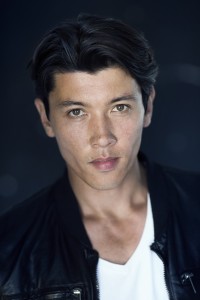 4. What inspired you to get into acting?
4. What inspired you to get into acting?
As far back as I remember I always had an interest in acting. Of course at first it was movies in general – since I was a little kid. My mom didn’t have a filter concerning my movie upbringing so I grew up watching a lot of movies I was way to young to see. It didn’t effect me in a negative way at all. I grew up watching The Godfather and Saturday Night Fever and a ton of Westerns. I was a huge Western fan when I was a kid. It was always so exotic for me as a kid seeing other cultures. It was eye opening for me to experience other parts of the world through movies. The best movies can be very up-lifting. In many ways sometimes movies can bring out positive things and make people feel positive things – bring out a positive energy. For me I think I was just really sensitive as a kid. Movies were just that thing that really appealed to me. It wasn’t until later on that I learned this was really work for an actor. Being an actor was part of the process of putting together a movie. It was the acting that I gravitated to. The creative process of creating the character and playing different characters. Versatile actors always fascinated me. They could play one part here and then play a completely different part. I was a very shy kid and I still am to this day I think. But watching that process was a big help.
As a kid growing up here there weren’t many actors with who I could identify. So I was always looking around me to actors on the international scene. Actors who looked like me. That is when Asian movies grabbed me and even American movies. Even back in the day they were much more multi-cultural than native movies here in Denmark.
5. Was that part of your decision to move to Tokyo?
That was definitely part of the decision for me to move to Tokyo. Coming from a mixed background you’re not always completely one thing or another. You’re always between. It took the chance to live in both cultures to really experience and be comfortable with that – that you’re not always one thing or another. That was definitely one if my initial motivations to move to Tokyo. But it was also, growing up here there weren’t many actors with who I could identify. So growing up I was trying to follow actors on the international scene and see one actor go this route or another route. Always looking overseas for inspiration.
6. I read that you worked as a bartender when you were living in Tokyo. What was that experience like?
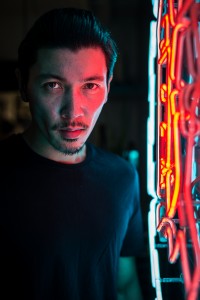 My older brother was my inspiration to move to Tokyo because he also moved to Tokyo after high school and ended up living there until now. He’s six years older than me so I followed him there. Initially just to live over there and learn the language and get a better understanding of our Japanese culture. Just to be closer with my Japanese family. Half of my family are in Japan – everyone on my father’s side. And of course my older brother as well. I only planned to stay there two years. But I ended up loving Tokyo so much I ended up living there for a longer time.
My older brother was my inspiration to move to Tokyo because he also moved to Tokyo after high school and ended up living there until now. He’s six years older than me so I followed him there. Initially just to live over there and learn the language and get a better understanding of our Japanese culture. Just to be closer with my Japanese family. Half of my family are in Japan – everyone on my father’s side. And of course my older brother as well. I only planned to stay there two years. But I ended up loving Tokyo so much I ended up living there for a longer time.
My first job over there was at a preschool. They needed someone with some international experience who could speak some English but also some Japanese. So that was my first job over there. I got a job as a bartender right after that because it made a lot of sense at the time because then I had the day to pursue a lot of other opportunities, to study and things like that.
7. Were you able to make any connections or friends who work in the film industry in Japan?
It took me a couple of years to really actually pursue my acting goals in Japan. Because first of all the language barrier. The fist two years I didn’t speak much Japanese. So after I got comfortable and could have a conversation I thought well maybe I’ll try and pursue it in Japan.
Originally my plan was to go to the States and try some of the schools there. But I had the chance to meet some people who were making independent films and started taking random courses. Things like that. So that’s when I started to make some connections. I had the opportunity to take screen fighting classes under Japanese stunt-man Sanshiro Wada.
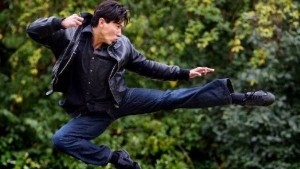 He was doing a lot of those action TV series like Ultra Man and things like that and I have a background in martial arts myself so through him I got inspired that maybe that’s a tool I could take with me in my acting journey and take some of that martial arts background as part of my acting roles. It was something that I love and suddenly I have some skills that I can use and try to be better at. I made some connections. But I found out that my opportunities were still limited because of my background and it was constantly being explained to me about my mixed background. After awhile I decided that I wanted to grow as an artist. At that point I had been in Japan for a number of years.
He was doing a lot of those action TV series like Ultra Man and things like that and I have a background in martial arts myself so through him I got inspired that maybe that’s a tool I could take with me in my acting journey and take some of that martial arts background as part of my acting roles. It was something that I love and suddenly I have some skills that I can use and try to be better at. I made some connections. But I found out that my opportunities were still limited because of my background and it was constantly being explained to me about my mixed background. After awhile I decided that I wanted to grow as an artist. At that point I had been in Japan for a number of years.
I moved back to Denmark to see if I could find other ways to pursue my acting goals and also to have the chance to work in my native tongue. A group of very radical filmmakers from Denmark were suddenly making waves internationally and also a number of ethnic actors had emerged onto the Danish film scene. Suddenly there was a hope. That was back in the early and mid 00’s
8. You have mentioned that in your country, in Denmark, people don’t pay attention to movies stars like you. How does that make you feel?
I definitely don’t consider myself a movie star but I have been lucky enough to be in a few films that are doing well internationally. So I guess I have gained some recognition in places like Japan and Hungary which I’m very grateful for. But here in Denmark I get to be more anonymous – which is a very good thing
9. What kind of movie would you like to make if you were to film in Japan or Denmark?
I’m always looking to grow as an artist. I’ve started producing my own projects in the past few years and I’ve also begun writing a lot. I’ve been working closely with Danish producer Lene Børglum – who recently produced Valhalla Rising, Only God Forgives and the The Neon Demon. I have some projects in development with her. They are of various genre. One of the projects we’re hoping to do is an action drama – something very, very dark. I have a very wide range of taste in film and genre that I’d like to explore – so I try with each type of project I do to make the characters very different. I really don’t want to repeat myself. I strongly believe in creating your own opportunities. So learning the ropes of putting a film together has been a strong focus of mine over the past years.
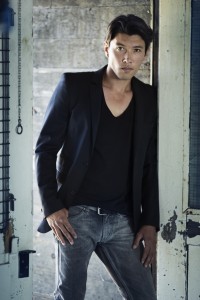 10. I can see from your work that you are not the stereotypical Japanese actor. I know that you are mixed with Danish and Japanese ancestry but your Japanese accent is almost perfect. I was so surprised when i talked with you! Given your experience and background, what kind of role would you want to play in Japanese movies?
10. I can see from your work that you are not the stereotypical Japanese actor. I know that you are mixed with Danish and Japanese ancestry but your Japanese accent is almost perfect. I was so surprised when i talked with you! Given your experience and background, what kind of role would you want to play in Japanese movies?
I have to keep my Japanese up because I do plan to make more work in Japan. Hopefully more opportunities will come up. If not then I have some projects that are Japan based that can happen in the near future. And those are the projects that I have been involved with in writing and producing. For me, right now I am in Denmark. The past year I have been working all over the place. I’ve been working in Los Angeles, New York, Bulgaria and I’m going to Istanbul, Turkey next month. I see the world as my workplace and I’m really not bound to a certain area. That’s why I’m trying to see if I can still keep myself relevant in the Japanese arena and hopefully do more work in all of Asia in the future.
11. We’ve already seen you in Japanese magazines and Japanese films. Are you planning to move back to Tokyo?
I’d love to return to Japan but it is really dependent on what comes up. I’d love to return to Tokyo especially and I can definitely see it happening in the near future. But right now I enjoy being able to take opportunities all over the world. I like to keep myself open to all kinds of opportunities. I have a heart in Copenhagen and I have a heart in Tokyo.
12. I have never experienced being a celebrity in Japan but I think you are already a superstar there anyway! If you go back to Tokyo, I think you will be chased around by your adoring fans! Would you be happy about that?
I was so humbled to meet the Japanese audience. I was over there in January to do a screening of Liza and the Fox-Fairy. It just reached a great number of people in Japan and played in theaters all over Japan. When I arrived there was a line going and I had no idea it was for my film but it was going out the theater and down the block. I was like, “is there a sale going on?” And they said no they’re here to see your movie. I was overwhelmed with the positive response and I was overjoyed to be there. I’m glad I had the opportunity to meet some of the fans over there. It definitely inspired me to kickstart some of the passion projects I had been working on that are based in Japan.
13. I’d like you to talk about your martial arts training. How did you get involved? What style of martial arts do you do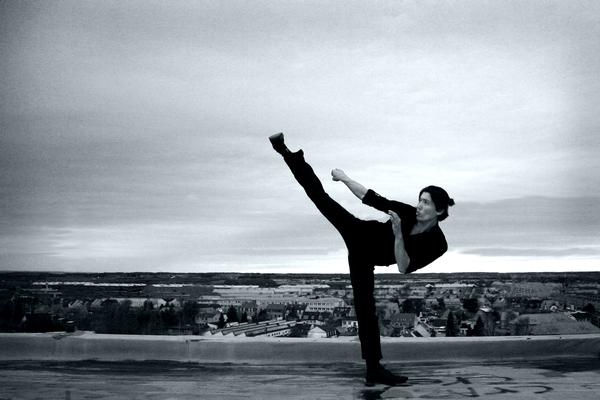 ?
?
Initially inspired by my older brother I started in Shotokan Karate. I was seven years old. After a while I started to look at other styles of martial arts. I was always a huge Bruce Lee fan. Bruce Lee was the first role model on screen who I could truly identify with. He was always very, very inspiring to me with all of his work, his philosophy and his strong persona. He had a huge influence on me. So I started to look up his background in the martial arts and I learned it was Wing Chun Kung Fu. I took up Wing Chun when I was twelve and I’d say that has been my main base of marital arts. Over the years I’ve learned that there were many gifts in cross training in other arts. As an actor you’re using a mix of martial arts in stunt choreography. The last couple of years I have been training in Muay Thai. I have done some training in MMA – just the movement of it I find to very inspiring. Recently I have been doing a lot of training in screen fighting – fighting for movies. That’s basically my main thing right now. Being able to defend myself was one of the main motivations to begin with initially – that’s when I found Wing Chun to be very helpful. These days it’s only film fighting.
David Sakurai / デヴィッド・サクライ / Action-Demo from サクライ on Vimeo.
14. Were there some martial arts movies that inspired you to become a marital arts student?
There are so many. I’m a huge film fan in general and I love watching all kinds of film – some I won’t mention out of embarrassment, but The Godfather especially parts one and two are films I watch at least once a year purely out of inspiration. And of course Bruce Lee – Fist of Fury was the first Bruce Lee film that I ever watched. I remember when we had rented it on video. I immediately rewinded it and watched it again. The tape was of course quickly ruined! The Crow – Brandon Lee was a huge inspiration and still is to this day. He had to do the whole action route to do the projects where his passion really lay. The Crow, his last movie is where his gift as an actor really came into play. It is also one of those projects that I go back to often just to study his skills and acting choices. I think he would’ve truly changed the game for Asian & mixed actors had he had more time.
I’m also a sucker for more dramatic films, romantic comedies or epic love stories like Legends of the Fall – you name it.
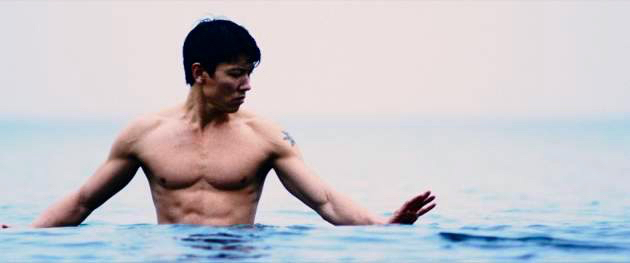 15. Which is your preferred medium for acting: TV dramas, movies or stage?
15. Which is your preferred medium for acting: TV dramas, movies or stage?
It all started with stage acting. As a kid I always participated in the school stage performances. It wasn’t realistic as a kid growing up thinking “I’m gonna be in the movies” but theater seemed like a more real possibility. But as soon as I got a chance to be in the movies it is where I laid my focus and like I said movies have been my passion since I was a little kid. Its something throughout the years that I have tried to get a better knowledge of – all the processes that go into producing a movie so that I can produce my own projects. TV series are just as relevant as movies these days and I feel they go hand in hand. I’ve had the opportunity to be involved with a few TV productions and hope to do more in the future. All of the good writers and directors seem to gravitate towards TV production these days. I’m very, very interested in that as well. You probably know that Japan has a great history of TV dramas so that is also something I would also be interested in pursuing some day.
16. Do you feel uncomfortable playing a role as a Chinese or Korean in a film even though you are not Chinese or Korean?
I feel a little bit uncomfortable in a way that say I’m cast to play a Chinese that really calls for Chinese origin, there are many great Chinese actors out there. I feel that the part should then go to a Chinese actor if the script really called for it. I also think it is time for the world to wake up and realize that not all Asians are alike. I come from a mixed background so I have never been able to go for the Danish part because I don’t look Danish, even though my mother is full Danish. And I have never been able to go for the Japanese part because my first name is David. They think “well he’s not fully Japanese”.
Its a hard topic. I mean, I hope in the future that parts will be relevant for people of any ethnicity. But like you said it is a topic that is just now beginning to change. It is beginning from the process of casting. Like the diverse casting in big blockbuster movies – I’ve heard some people think it is being too politically correct trying to do that. I really don’t believe that. I think it is very refreshing to see a multicultural cast in films like the Fast and Furious series or the Magnificent Seven remake. I think it is great.
For me as a small kid growing up I couldn’t truly identify with the all Asian characters and I was unable to play that role because of my mixed ethnicity. And of course I also wanted to identify with the non-Asian roles but I was always like, “I can’t get that part” because I don’t at all look like that either. Confusing. Yes. But now things have changed and we are starting to see those multicultural roles. That’s my world – that’s what I see everyday around me! For example Star Wars Rogue One when you look at that poster and see the cast list. We got all kinds of ethnicity and gender representation there. It really is amazing and refreshing to me! Not only that I was also a huge fan of Donnie Yen as a kid – I still am! So it’s so nice to see actors of various backgrounds and they are not divided anymore. There is Donnie Yen starring along another favorite actor of mine Mads Mikkelsen! I’m just like, wow Donnie Yen and Mads Mikkelsen in the same film!
I think it’s time for a change and I do believe that things are truly changing. And I hope to not play the stereotypical Asian hitmen in the future. I did play that role in In Order of Appearance. But when I got cast for it the director Hans Petter Moland and Stellan Skarsgård suggested that they change it because of my background. They found out my background and quickly saw the irony in it so they changed it. And of course his codename is “The Chinese” so its even more ironic. I was very fortunate that they changed it up. Actually there were some more scenes being filmed that gave more of a background motivation for the character but they didn’t make the final cut. But I was very honored to be a part of that and see that change also.
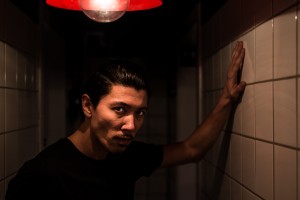 17. Have you taken acting classes? Specifically in LA, have you taken courses on acting?
17. Have you taken acting classes? Specifically in LA, have you taken courses on acting?
Yeah I have. These days I don’t have much time to do regular acting lessons. But the first couple of years when I lived in Japan I just took all the courses I could over a period of two years. In recent years I’ve tried to find time to study with coaches privately and every time there’s a seminar, either in Denmark or when I’m in LA, I try to go as much as possible. I’ve been lucky to be kind of busy for the past couple of years. Also because of the languages I try to portray I had to seek out the kind of classes in LA where I could learn how to work in the language with accents etc. But I think acting schools are great.
At some point though you have to put all the things that you’ve learned to the test. For me this happened very early on in my career. It’s different when you’re on an actual film set, creating a scene, sparring with your scene partners on camera, working 12-15 hour days, pushing the stamina and trying to maintain the energy on screen. That is something you have to learn by doing. It’s discipline but not hard work – cause I love doing it!
18. We talked a little bit about the movie ‘Sleepless in Town’, Japanese title ‘Fuyajô’ costarring Takeshi Kaneshiro, and I really think that you perfectly fit in that character Kenichi Ryuu which was played by Mr. Kaneshiro. There was a rumor that we will get to see the sequel of that movie, but it never came out.
Can you talk about what you liked about this film?
That’s also one of my favorite movies. Fuyajô, love that movie. Takeshi Kaneshiro is an actor I have been looking up to since way back. Ironically he’s also half Japanese and that might be part of the reason. Also the way he has been able to handle his career and work in multiple languages and work all over Asia and America. But also the way that movie uses his mixed background. It had all the elements I like: beautiful writing, great camera work, and just a great love story – a tragic love story. I wasn’t actually aware there had been a sequel planned for it. It actually came out just about the time when I had initially moved to Japan. I think that’s also why it had made a huge impression on me.
19. I know that Tatsuya Nakadai is one of your favorite actors. Do you see him as a role model and part of your inspiration?
Yes. Nakadai is one of the first actors where I realized an actor can be truly versatile. Of course he is very well known for his portrayal of roles as samurai characters. One of his most famous movies is Harakiri (Seppuku). In that movie he actually plays a character that was twice his age when it was filmed. He did it very impressively! His intensity made the character jump out of the screen. He could invoke so much feeling without saying anything. So for me when I was looking at screen acting, when I was just trying to get a grasp on it early on he was an actor I could always go back to because he always knew how to play it for the camera. I find all of his work very inspiring. He played in spaghetti westerns, you know, he played so many different types of characters. He used the opportunities that came by him to play roles from many different cultures. He’s truly one of my great role models, very unique and I hope to eventually be able to pursue career choices like he did.
20. Speaking of In Order of Disappearance, what was it like getting to share the screen with Stellan Skarsgård?
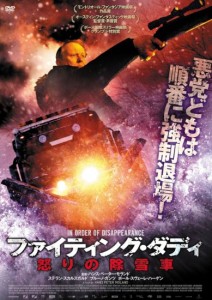 Of the Scandinavian actors where I come from he was the first who broke down many of the barriers for the rest of us. Even in Hollywood when you think of the Scandinavian actors he’s still number one. And also his choice of work. I have been following the work he has done with director Hans Petter Moland. They have done a couple of movies together now. So for me it was a huge opportunity to work with the two of them. I had seen all of the previous films that they had done together. Of course I have been a fan of Stellan’s work for a long time but especially his Hollywood films. He has such a strong screen persona.
Of the Scandinavian actors where I come from he was the first who broke down many of the barriers for the rest of us. Even in Hollywood when you think of the Scandinavian actors he’s still number one. And also his choice of work. I have been following the work he has done with director Hans Petter Moland. They have done a couple of movies together now. So for me it was a huge opportunity to work with the two of them. I had seen all of the previous films that they had done together. Of course I have been a fan of Stellan’s work for a long time but especially his Hollywood films. He has such a strong screen persona.
That project was for me very exciting. I was happy to come onboard. It was an ensemble film but I was excited to work with Stellan. He’s one of those actors that can do so much with so little. It was a great learning experience to see him working. Then to see the whole movie I was impressed to see the choices that were made. He was very welcoming to me. But it is always hard to come in as a side character, one of the supporting roles because you’re not there from the initiation like you are when you are there for the lead.
You come in and you have to figure out “this is the kind of movie”, – it was a comedy movie. How do we play the tone, is he a real hitman or what kind of tone should we do. We just tried to make the character very mellow. But also Stellan’s character is very underplayed. But he is an amazing actor. I think every time there is a new Stellan project I just have to see it. There’s a TV show on Netflix right now called River and I highly recommend it.
21. Do you have a favorite movie that Stellan is in?
Den Enfaldige Mördaren or “The Simple-Minded Murder” by director Hans Alfredson. Ronin was a great one he did with Robert De Niro. Thor, Pirates of the Caribbean. He started out really young. So it is interesting the way he has managed to stay relevant. Everything from small Danish films to Hollywood blockbusters.
22. Can you talk to us about the film Dark Samurai? Who wrote the script? What is the story about? Can you describe your character, Miyamoto Musashi?
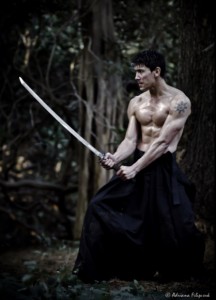 The director is a very dear friend of mine, Sidney Lexy Plaut and we had always been talking about doing something together. He is a big fan of Japanese cinema in general. To be honest it all started out as an experiment. We had initially intended a shorter version. I haven’t seen the finished product myself, just because it was such an intense experience making the film. Not that I don’t want to but the experience of making the film is something I’d like to take with me and I haven’t been able to watch it myself – yet. But we very much talked about what we wanted to bring to the screen. We were both very much interested in creating feelings and mood to the screen. And also bringing in the warrior’s philosophy and also a love story – all of this into this piece of work. That is why, in hind sight it may have been a radical choice to use Miyamoto Musashi. And its not that its supposed to actually be Miyamoto Musashi but just the name of it stands for so much. The warrior code, the philosophy of The Book of Five Rings. That was something that helped me as a character to create the frame of mind to create this persona and this kind of character.
The director is a very dear friend of mine, Sidney Lexy Plaut and we had always been talking about doing something together. He is a big fan of Japanese cinema in general. To be honest it all started out as an experiment. We had initially intended a shorter version. I haven’t seen the finished product myself, just because it was such an intense experience making the film. Not that I don’t want to but the experience of making the film is something I’d like to take with me and I haven’t been able to watch it myself – yet. But we very much talked about what we wanted to bring to the screen. We were both very much interested in creating feelings and mood to the screen. And also bringing in the warrior’s philosophy and also a love story – all of this into this piece of work. That is why, in hind sight it may have been a radical choice to use Miyamoto Musashi. And its not that its supposed to actually be Miyamoto Musashi but just the name of it stands for so much. The warrior code, the philosophy of The Book of Five Rings. That was something that helped me as a character to create the frame of mind to create this persona and this kind of character.
To have this type of character that has such a strong code of conduct being conflicted by love and the general emotions that we deal with be it hate, anger, frustration, lust and love – that was all something we all had to play around with. But in a philosophical way. The process for me was more of an experience and I haven’t seen the final product. I look forward to seeing it soon, I guess its just taken me a while to get to the point where I want to see it. I guess mostly because it is mainly just me. I don’t have a lot of patience to watch myself I guess. I hope you enjoyed it.
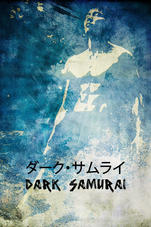 Watching it myself I can tell you that the film succeeded in stirring up a set of emotions and viewing the film was really an intense experience. I’d say you succeeded in your attempts to create a unique cinematic experience.
Watching it myself I can tell you that the film succeeded in stirring up a set of emotions and viewing the film was really an intense experience. I’d say you succeeded in your attempts to create a unique cinematic experience.
That’s great, I’ll have to tell Sidney that. The goal was to create this kind of emotion, you know, what kind of emotion comes up? I heard the audience experience has been very different. They’ve come out feeling very frustrated but then a few days later they’re thinking, “oh my god I can’t even stop thinking about it!”. Credit must go to Sydney. It was a very extreme choice to do this kind of work and we spent two – almost three years working on this. My hats off to him, it was dear to him. It was a hard-sell. We grew up in a time when movies like this used to exist, movies that have more of a philosophical undertone. But it is a hard sell to get this kind of movie produced.
23. Echoes of a Ronin is an intense short film about greed, betrayal and retribution. Can you talk a little bit about that film?
That was one of the first projects that I wrote and produced myself. I got the funding to do it and they had been experimenting with a new form of funding at the Danish Film Institute where you had to come up with an idea very fast and then from idea to script to filming was a very short process.
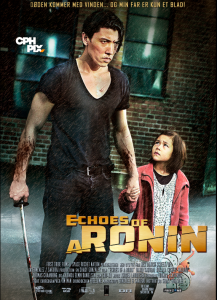 So I cowrote this project with a director Shaky González and he’s known to do more genre work. I had an idea to do something that could be something of a throwback to Asian action movies but at the same time something new to what was produced in Scandinavia. You don’t see many action movies filmed here – especially films containing screen fighting. So they funded that for us. We were both big fans of Lone Wolf and Cub (Kenji Misumi). A movie was released in the States called Shogun Assassin. Which is about a ronin samurai that goes on a lone quest with his young son. So we changed the son to a daughter and changed the setting to Copenhagen. We wanted to see if we could get the few Asian-Scandinavian artists involved. And we did that both in front and behind the camera. We got a great fight choreographer named Tim Man, he came over to train me for the film and did all the action direction. It was huge to get him involved. It is very different than what is generally being produced here. But I’m very proud of that project. Because I see it as a tribute to the Chambara movies, the sword play movies I grew up watching. And it was in Danish. It had a TV premiere here a few years ago then was in the festivals and then we decided to make it available online. That’s where I created a passion for creating more projects and decided to be involved with the creative process.
So I cowrote this project with a director Shaky González and he’s known to do more genre work. I had an idea to do something that could be something of a throwback to Asian action movies but at the same time something new to what was produced in Scandinavia. You don’t see many action movies filmed here – especially films containing screen fighting. So they funded that for us. We were both big fans of Lone Wolf and Cub (Kenji Misumi). A movie was released in the States called Shogun Assassin. Which is about a ronin samurai that goes on a lone quest with his young son. So we changed the son to a daughter and changed the setting to Copenhagen. We wanted to see if we could get the few Asian-Scandinavian artists involved. And we did that both in front and behind the camera. We got a great fight choreographer named Tim Man, he came over to train me for the film and did all the action direction. It was huge to get him involved. It is very different than what is generally being produced here. But I’m very proud of that project. Because I see it as a tribute to the Chambara movies, the sword play movies I grew up watching. And it was in Danish. It had a TV premiere here a few years ago then was in the festivals and then we decided to make it available online. That’s where I created a passion for creating more projects and decided to be involved with the creative process.
24. There is a parallel between Echoes of a Ronin and Léon: The Professional, the film with Jean Reno and a very young Natalie Portman. Was this film in your mind as Echoes of a Ronin was being written and produced?
I know that film and I definitely see the resemblance but it was Shogun Assassin that provided the inspiration. I am sure that without thinking about it Léon: The Professional probably had an influence because that film sits well within me. I couldn’t have it any other way. There are only so many stories you can tell about a warrior and a young daughter or son going on an adventure. But it was a fun movie.
25. The actor Thomas Chaanhing plays your adversary in the film, “Ken”. He had some impressive martial arts moves himself. Can you tell us a little about his background?
Thomas is a trained actor here in Scandinavia. He’s a good friend of mine. We had always talked about getting together to work on a project together. In Denmark there are only like a handful of Asian actors. That’s it and I think most of us know of each other. But Thomas is one I really wanted to work with. I think he has great charisma and is a fantastic actor. It was an opportunity to do something with him as well. We both got trained by Tim Man for the martial arts sequences. So that was fun as well. Thomas has since gone on to do a bunch of international projects, he’s in Marco Polo that’s on Netflix right now. Hopefully we’ll get the chance to get together and do more projects in the future as well.
26. In Liza the Fox-Fairy you play a unique role – the role of a singing ghost. This presented a unique challenge, playing a supernatural character with the ability to sing. Can you talk to us a little about preparing for this role?
It was such a great opportunity to be involved with that projec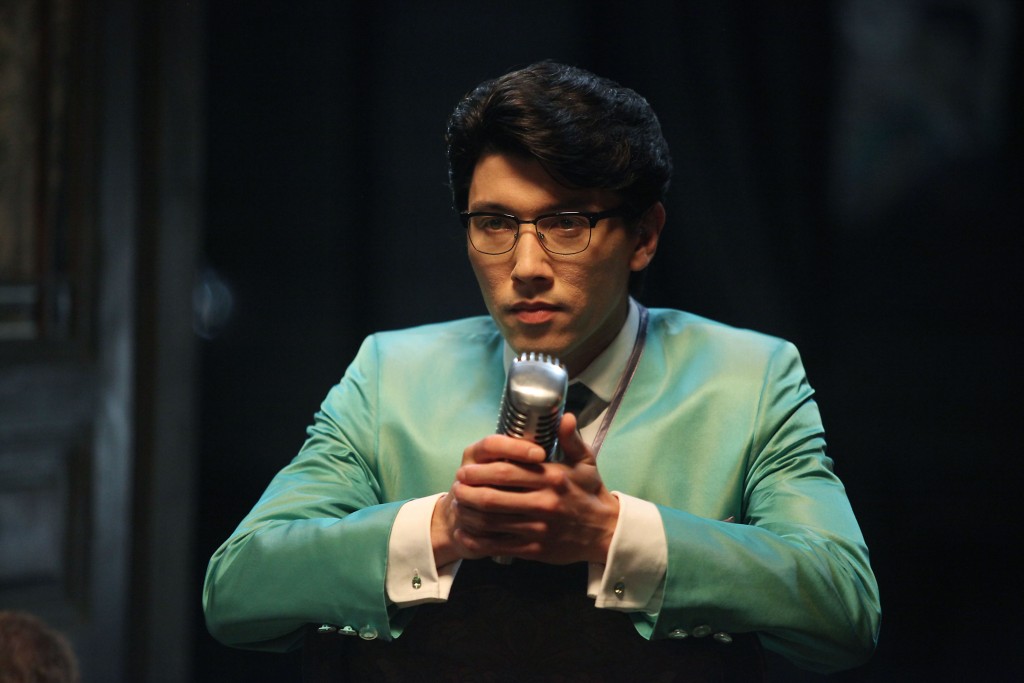 t. It was so random to be called up to come audition for that role because who creates a world where this kind of character exists? It was truly a gift to have the chance to work with the director Károly Ujj Mészáros. I didn’t have a background at all in singing or performing. I think I played one of the dancers in our high school production of Chicago. And then after that I was like, “never do that again!”
t. It was so random to be called up to come audition for that role because who creates a world where this kind of character exists? It was truly a gift to have the chance to work with the director Károly Ujj Mészáros. I didn’t have a background at all in singing or performing. I think I played one of the dancers in our high school production of Chicago. And then after that I was like, “never do that again!”
When I had the opportunity to come out and participate in a casting call they had been trying to cast it for a long time, apparently and it may have been hard to cast it. They had tried to cast it in Japan, they had tried to cast it in the States, they were trying to cast it in Europe. They were trying to find the person closest to production which was going to be in Hungary. But then they learned that I actually had a Japanese background and I was flown in to meet with the director. He had seen some of my previous works – he had actually seen an early trailer for Dark Samurai. He said “this is great” because the character has to be somewhat vengeful. So I said this was great because I had just come off of Dark Samurai. But it was so different a type of vengeful. The next thing I knew I was in Budapest taking dancing lessons and singing my heart out.
I was a bit lucky because the actual songs had been pre-recorded by a Hungarian artist named Ambrus Tövisházi (aka Erik Sumo). I didn’t have to do the final singing. But I had to sing on the set live. I am so proud to be a part of this film. I think it is so unique. Even at the time of filming it was so hard to understand what kind of movie it was going to be because its really creative. Through this very weird world where my character exists.
I told the director I think we can make a really big impact with this more in Japan I think it fits the taste of the Japanese audience. I was just so happy when if finally came out. First it was playing at the Japanese film festivals and then it got picked up and they did a whole theatrical run of it. I was so happy. Because what a rare project where it has a mix of Europe and a mix of Asia. It just blends. I hope to be involved with more of those projects in the future. Because it does build a bridge.
27. What kind of Japanese music do you like personally?
I lik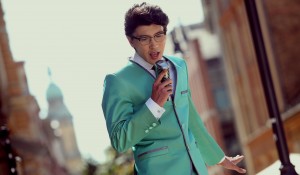 e all kinds of music, it really depends on the mood. Actually, as part of my preparations for my character Tomy Tani in Liza the Fox-Fairy I had to keep music in my ears at all times while I was on set. The character needs so much energy – happy energy – that I was listening to very happy pop songs all day. But I like all kinds of music. I grew up with mostly American music in my home. With my parents I listened to The Doors, Santanta. Later on myself, Hip Hop of the 90’s and then Rock; Metallica, Guns and Roses. Whatever was available. Then when I came to Japan I discovered more Japanese artists B’z for instance who did the soundtrack for Sleepless Town. I’m not that aware of the artists that are out there right now but, Dragon Ash.
e all kinds of music, it really depends on the mood. Actually, as part of my preparations for my character Tomy Tani in Liza the Fox-Fairy I had to keep music in my ears at all times while I was on set. The character needs so much energy – happy energy – that I was listening to very happy pop songs all day. But I like all kinds of music. I grew up with mostly American music in my home. With my parents I listened to The Doors, Santanta. Later on myself, Hip Hop of the 90’s and then Rock; Metallica, Guns and Roses. Whatever was available. Then when I came to Japan I discovered more Japanese artists B’z for instance who did the soundtrack for Sleepless Town. I’m not that aware of the artists that are out there right now but, Dragon Ash.
I like my J-Pop!
28. I would like to know if you are a fan of Japanese animation? Your appearance reminds me of many anime characters whose looks are a mix of Japanese and European features. I think you have a very unique appearance and could easily be a character in an anime film!
Yes, I love Japanese Anime! Some of my favorites are Hokuto no Ken, Crying Freeman, Saint Seiya & City Hunter!! There are so many good ones.. I also love Hayao Miyazaki movies!!
29. In your movies, there are many special effects works, do you have a favorite special effect team?
No. There are so many. In Echoes of a Ronin everything was done through practical effects. The director has a background in horror and suspense so he likes to do in camera effects. There are some great companies here in Denmark that do that kind of special effects. I’m a practical guy and like to leave those things to the director. When the film does involve special effects I like it to be done very subtle – mixed with practical effects. That’s why I’m really looking forward to seeing the new Star Wars where they’ve gone back the original kind of effects. For me acting with special effects is a little bit different. We had some green screen because we had a ghost – people can go through him. It is more of a process to work with special effects.
30. What projects have you been involved with recently?
I recently had the chance to work with Antonio Banderas on his new action movie “STOIC” by director Isaac Florentine. It was a really great experience and Antonio didn’t disappoint. He’s the real deal Action Star and an amazing actor!
I’m off to Istanbul next month to work with Turkish director Can Evrenol on his new film The Housewife. His last movie “BASKIN” had a great run at the festivals. Now he’s following it up with The Housewife. I’m lucky to have one of the leading roles. We’re shooting that next month. I’m preparing for that right now. I’m also in the Japanese produced movie “Karate Kill” from Kurando Mitsutake – it just had a theater run in Japan and will be coming out on DVD/BluRay in March. I had fun guest starring role in that one. I think it’s extra fun for the Japanese audience because they’re fresh off of Liza and the Fox-Fairy and well, it’s a very different character again. Had a good time working with Kurando and the amazing action team behind it.
I’m also involved with a show that I can’t say much about only that its Marvel’s Ironfist!
It will come out March 17th, world premiere on Netflix. I look forward to share more about that in the near future!
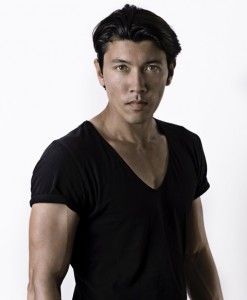 31. What is life like in Los Angeles after living in places like Tokyo and Copenhagen?
31. What is life like in Los Angeles after living in places like Tokyo and Copenhagen?
I love LA. The mix of cultures. And of course for me its an important place of work. For me its always been a dream to live over there. So much inspiration comes from working with artists there. Every time I’m there I come away inspired. But of course my heart is still in Denmark and still in Japan. I don’t think I could ever settle in just one place.
32. Can you tell us the type of girl that you like?
I love honesty, loyalty – it has to go hand in hand. I’m very lucky to have a person in my life who is very true. Its important for me to find someone who has the same goals for their life as myself – looks for the same qualities that I look for. It goes both ways. You’re going to have times in your life when you’re super-busy and times when you are not.
To answer the question: Positiveness. Honesty. Being able to show true love is something I find most important.
33. Do you have something you would like to say to your fans at Ninjagirl?
Whether you are pursuing something in a creative field or whatever your aspiring goals are, find something that you want to do 100%. Something where you can’t see yourself doing anything else. And if its in the creative arts its going to be a struggle and its going to be a long struggle – an ongoing struggle. So if it is in the creative arts you’ve got to do it with all your heart and all your passion. Don’t give up. Do it only if you can do it with your own heart. And I think that goes with everything. No matter what your future goals are. Find your passion. Because once you find your passion then its not gonna feel like work, no matter what it is. I’m glad to have had the opportunity to find out early on what my true passion is. Through ups and through downs it is always what has brought me the greatest gift, knowing that I have pursued my dream and my passion 100%. So, I hope you make a good choice. Take a long time to think what your goals are and just go for it.
Thank you David Sakurai!
I’ll be waiting for the next time you come to Japan. I can’t wait to see more of your work in the Japanese film industry!
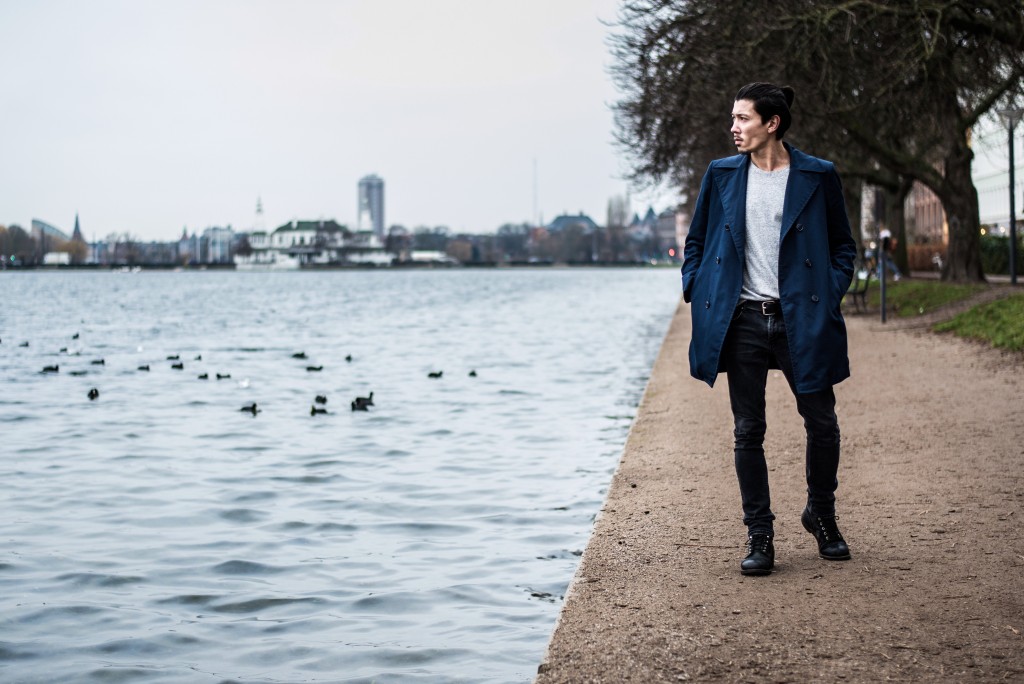
Photo (featured and bottom) by: Alexandre Archimbaud
Edited by Anthony Heller



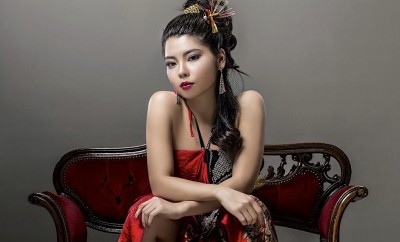

1 Comment
You must be logged in to post a comment Login